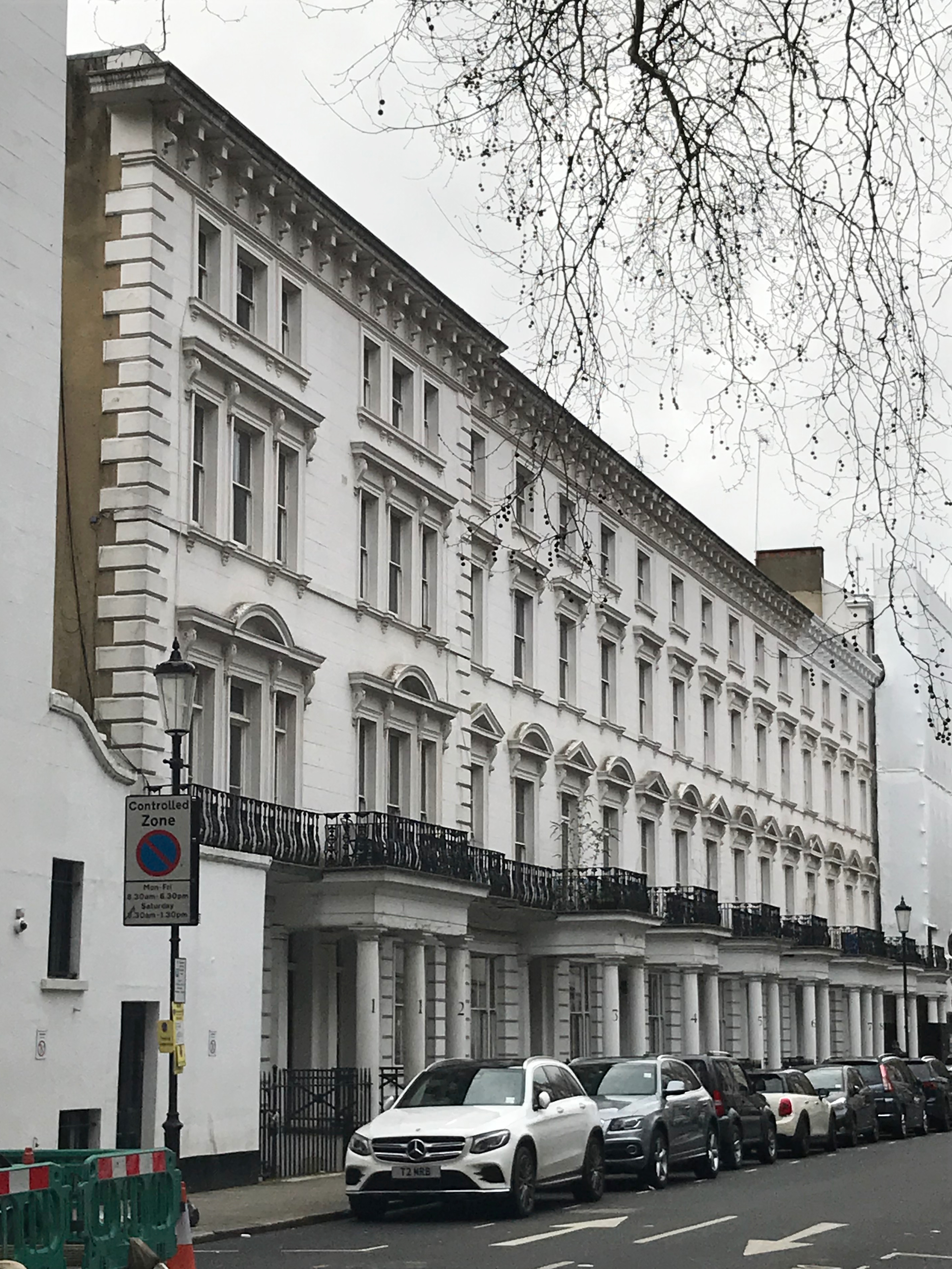News
Overcoming ambiguous use class orders: Green light for extensive works in SW7
Acting on behalf of the Royal Brompton & Harefield Hospital Charity, Turley has secured full planning permission and listed building consent for the change of use and extensive internal and external works to 1-9 Foulis, SW7.
We provided expert planning advice for the proposals which will create 44 House in Multiple Occupation (HMO) rooms with en-suite bathrooms and shared facilities, as well as the creation of 10 studio apartments. Despite the scale and complexity of the works as a major application to a terrace of grade II listed properties, planning and listed building consents were secured under delegated powers without the need to go before the planning committee.
The approved works relate to nine of the terraced properties on this prestigious street in the Royal Borough of Kensington & Chelsea (RBKC), ensuring that the charity can maximise the value of this asset to assist with its charitable objectives whilst being able to invest and upgrade in their wider portfolio within the Borough.

A key turning point for the proposals involved lawful land use, as the properties were previously in full time use as nurses’ accommodation aligned with the Royal Brompton Hospital. This required understanding a complex planning history and led to interesting debate on the ambiguity between what classifies a hostel and what classifies a HMO.
RBKC’s initial stance was that the properties were a hostel and under relevant Development Plan polices the loss of this existing use would not be permitted. Following extensive dialogue with RBKC on this technical matter and as part of a phased planning strategy, a Certificate of Lawful Existing Use was previously submitted to confirm the existing use of the terrace of properties as a HMO (Sui Generis) use. The justification comprised a scrutiny of case law and recent appeal decisions, including an emphasis on the definition of a hostel from the High Court Judgment, Panayi v. Secretary of State for the Environment and Hackney LBC [JPL 783], and how this property did not accord with the findings of this judgement which sought to classify a hostel.
A certificate was subsequently issued in late 2018, which in turn allowed for the second phase of the strategy to be implemented, with the submission of the above linked applications for the substantial reconfiguration and upgrade works of these properties for unrestricted residential rooms and units on the basis that the existing lawful use class was that of HMO. On this basis, the RBKC Development Plan permitted the change of use to both studio apartments and enhanced HMO accommodation, with RBKC accepting as part of their balancing exercise that the proposed works would enhance the character and appearance of the property and wider conservation area.
Commenting on the approval Associate Director at Turley, Catriona Fraser said:
“The ambiguity and complexity surrounding different uses and their classification within the use class order is widely recognised in the field. Case law certainly helped in this instance, enabling us to separate the two uses by identifying nuanced differences. Moving forward, however - and with different products such as co-living, and other forms of large-scale shared accommodation coming to the market - it is apparent that we will need new case law, or indeed a revision in the use class order, to be able to form the right distinctions.”
Please contact Catriona Fraser or Alex Christopher for further information on use class orders and planning in London.
12 September 2019
